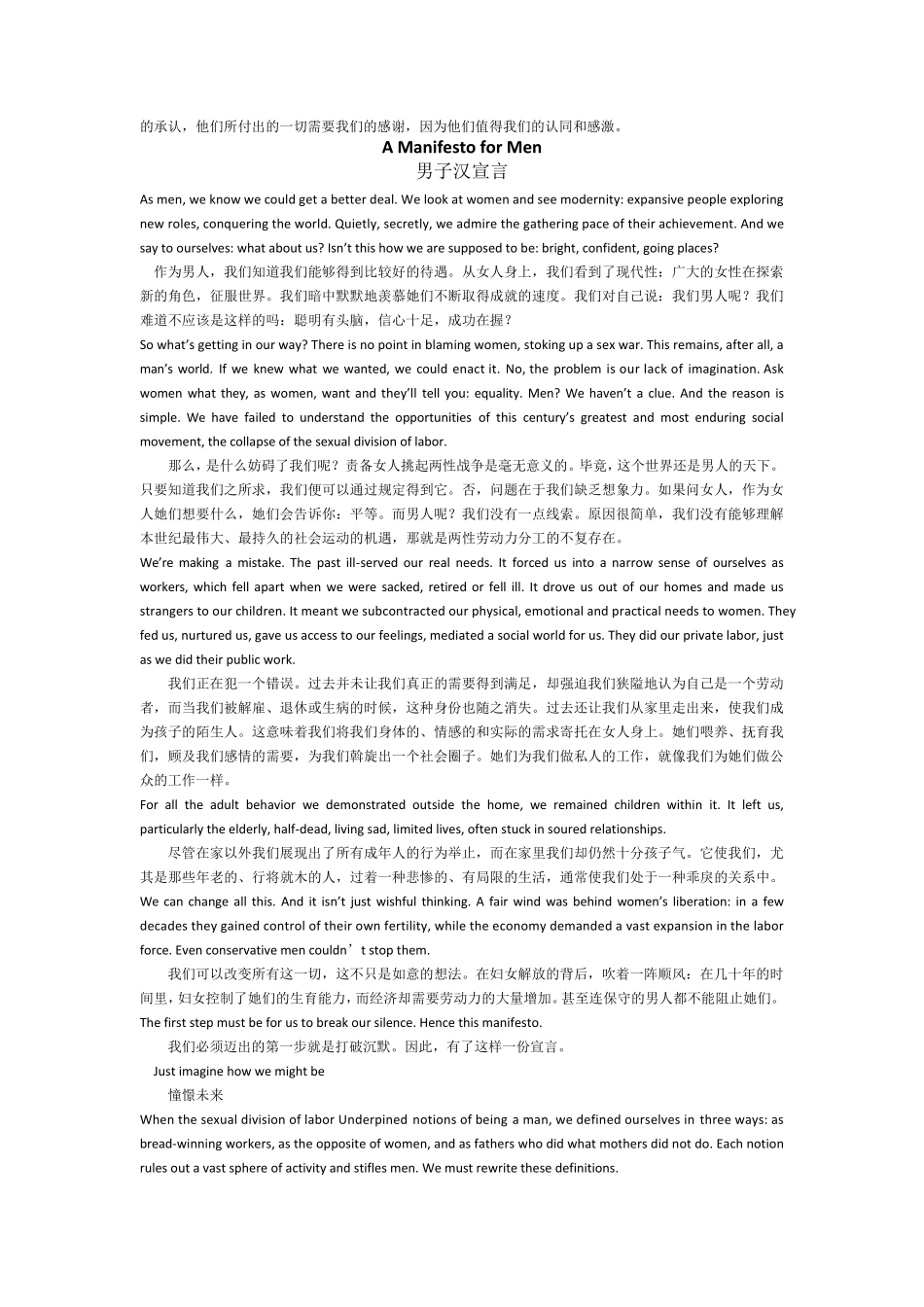The Unsu ng Heroes: What Abou t Working Dads? 无名英雄:职业父亲意味着什么? On our first "date" after our twin daughters were born, my husband and I went to see the movie Toy Story. We enjoyed it, but afterward my husband asked, "Where was the dad?" At first, it seemed petty to criticize an entertaining family movie because of one small point. The more I thought about it, however, the more glaring an omission it seemed. Not only was dad not around, he wasn't even mentioned — despite the fact that there was a baby in the family, so dad couldn't have been that long gone. It was as if the presence— or absence — of a father is a minor detail, not even requiring an explanation. 在我们的孪生女儿出生后的第一次"约会”时,我和丈夫一起去看了一部名为《玩具故事》的电影。我们很喜欢这部片子,但随后我丈夫问道:"父亲在哪儿呢?”起初我还认为因为一个小小的失误而批评一部很吸引人的家庭影片似乎是太偏狭了。可后来越想越觉得这一疏忽太严重了。父亲不仅没有出现,他甚至没有被提到—— 尽管家中有婴儿,说明他不可能离开太长时间。影片给人的感觉是,父亲出现与否似乎是个极次要的细节,甚至不需要做任何解释。 This is only one example of the media trend toward marginalizing fathers, which mirrors enormous social changes in the United States. David Blankenhorn, in his book Fatherless America, refers to this trend as the "unnecessary father" concept. 新闻媒体倾向于把父亲的边缘化,这只是一个例子,它反映了在美国发生的巨大的社会变化。大卫?布兰肯霍恩 在《无父之 国》一书 中将 这种 倾向称 之 为"无需父亲”观 念 。 We are bombarded by stories about the struggles of working mothers (as opposed to non-working mothers, I suppose). Meanwhile, a high proportion of media stories about fathers focus on abusive husbands or deadbeat dads. It seems that the only time fathers merit attention is when they...


